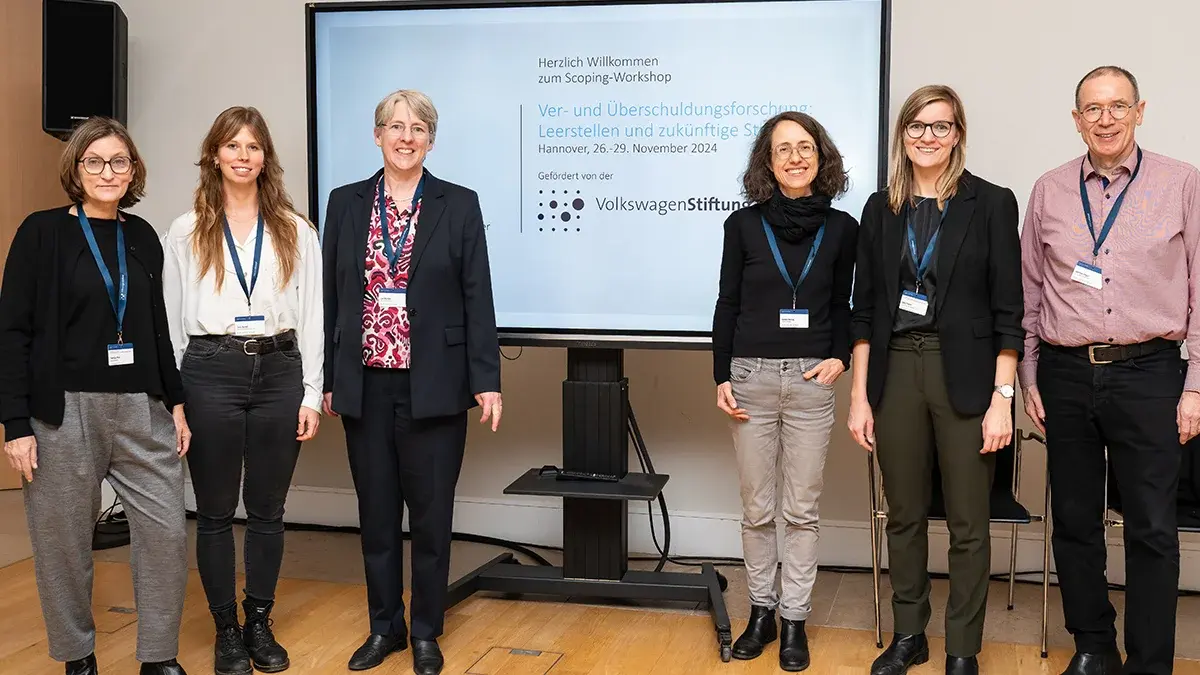More than five million adults in Germany are considered over-indebted. In addition, there are partners, children and relatives who are also affected by financial difficulties. Despite this, scientists still know far too little about why people are over-indebted and what social and health effects this has.
Prof. Dr. Kerstin Herzog, Professor of Social Work - Precarious Living Conditions in the Faculty of Applied Social Sciences at Hochschule RheinMain (HSRM), has drafted a position paper together with other partners to draw attention to the omissions in over-indebtedness research - and to propose solutions.
What we know about over-indebtedness - and what we don't know
"Sudden life crises such as a serious illness, a separation or the loss of a job can lead to over-indebtedness," explains Prof. Dr. Herzog. "But living permanently in poverty or on a low income also increases the risk of payment problems and over-indebtedness. Mental stress, feelings of shame and guilt are often the consequences. How exactly these processes lead to over-indebtedness or out of it is still far too little researched."
Basic data is often lacking: There is no reliable and independent data basis on how many people in Germany are actually affected by over-indebtedness and what type of debt they have. After all, not all debts are the same: consumer debt, rent arrears, property loans or even BAföG repayments affect different life situations - and require different solutions. Debt advice services have also been working without comprehensive scientific support to date, although their knowledge would be valuable in order to improve help services in a targeted manner. New risks such as digital consumer offers ("buy now, pay later") and the particular challenges faced by people experiencing poverty or migration have hardly been investigated. And although over-indebtedness is an international problem, there is a lack of exchange across national borders.
This should change. The experts call for
- a comprehensive inventory of all existing data and studies
- the establishment of a permanent research network
- close cooperation between different subject areas
- the development of clear quality standards for over-indebtedness research
- stronger links between research, advice centers and politics
The social and health consequences of over-indebtedness can only be reduced in the long term if research, policy and practical experience work more closely together. "We would like to make a contribution here by conducting further research together with other disciplines," says Prof. Dr. Herzog. "Because even if the risks are distributed differently, over-indebtedness can affect anyone."
Development of the position paper
The position paper was developed in the Volkswagen Foundation-funded scoping workshop "Over-indebtedness and over-indebtedness research". The participants were Prof. Dr. Kerstin Herzog from Hochschule RheinMain, Prof. Dr. Eva Münster from the University of Witten/Herdecke, Dr. Sally Peters and Caro Berndt from the institut für finanzdienstleistungen e. V. (iff), as well as Prof. Dr. Patricia Pfeil from Kempten University of Applied Sciences.


